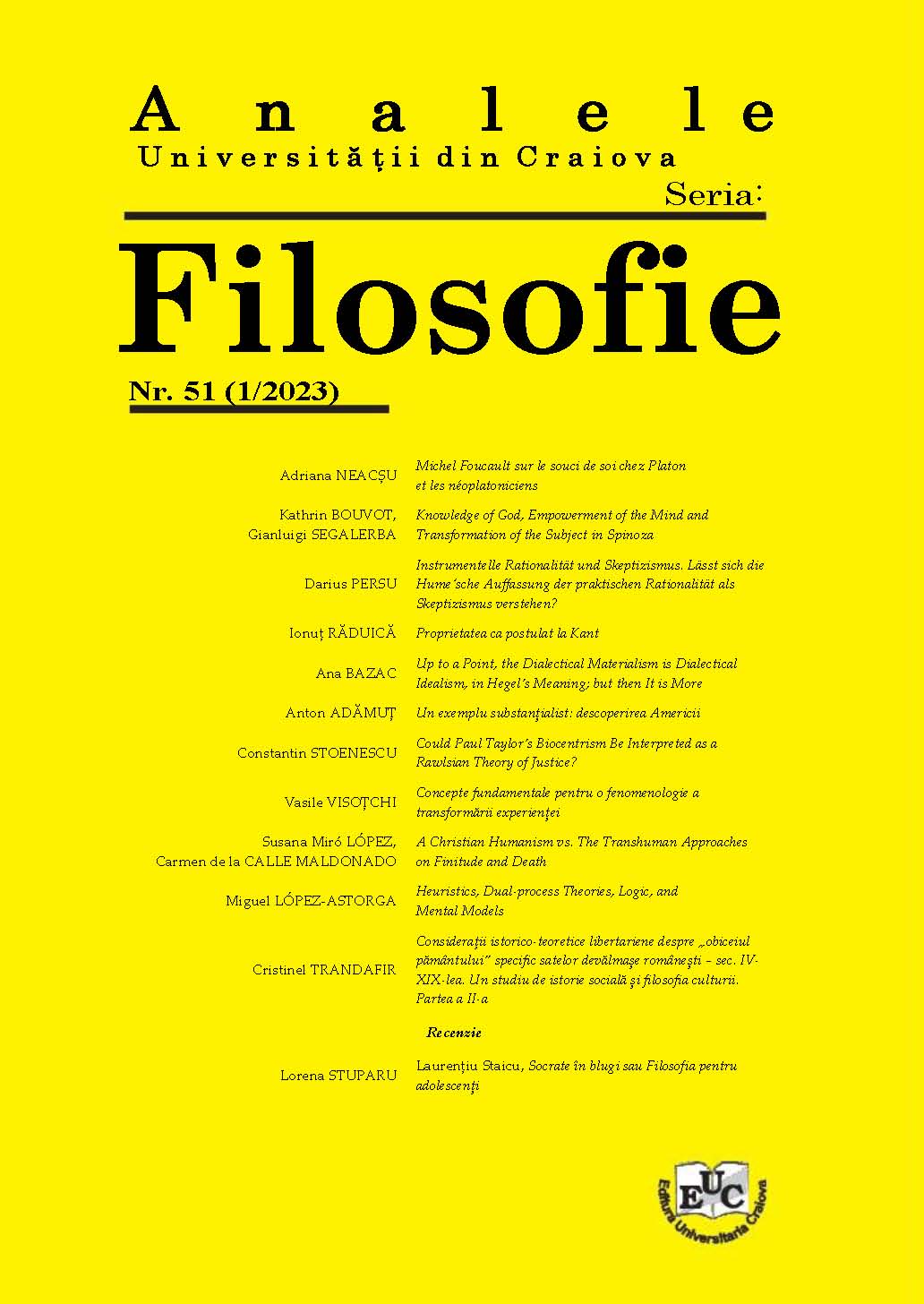COULD PAUL TAYLOR’S BIOCENTRISM BE INTERPRETED AS A RAWLSIAN THEORY OF JUSTICE?
DOI:
https://doi.org/10.52846/afucv.vi51.49Cuvinte cheie:
Ethical theory, distributive justice, justice as fairness, environmental ethics, biocentrism, inherent worth, rules of the duties of human moralityRezumat
In his „A Theory of Justice” Rawls accepts that „a conception of justice is but one part of a moral view”, that „it is wrong to be cruel to animals and the destruction of a whole species can be a great evil”, and that there are moral duties regarding animals, species and nature, but „they are outside the scope of the theory of justice, and it does not seem possible to extend the contract doctrine so as to include them in a natural way”. However, Rawls mention a way to find an answer to this challange: „A correct conception of our relations to animals and to nature would seem to depend upon a theory of the natural order and our place in it. One of the tasks of metaphysics is to work out a view of the world which is suited for this purpose;
it should identify and systematize the truths decisive for these questions.” (Rawls, „A Theory of Justice”, 1999, p. 512). My aim in this paper is to argue that Environmental Ethics tried to offer exactly this requested theory of natural order so that it become possible to talk in terms of justice about an extended moral community, the so-called biotic community or community of life. I claim that biocentrism is a theory which is able to fulfill this task. Paul W. Taylor, in his „The Ethics of Respect for Nature” (1981) develops a theory based on the concepts of respect for nature, good of a being and inherent worth. If Rawls (See his „Justice as Fairness”, Philosophical Review, 1958, 67, p. 183) describes the rules of the duties of human morality (fidelity, gratitude, honesty and fidelity) as „forms of conduct in which recognition of others as persons is manifested”, Taylor considers that „the rules of duty governing our treatment of the natural world and its inhabitants are forms of conduct in which the attitude of respect for nature is manifested.” (1981) I will argue that the extension of moral community is possible using Rawls’ conceptual framework. Therefore, a new theory of natural order can be derived step by step so as the contract doctrine will be extended without any prejudices to Rawlsian initial presuppositions. My aim is to offer a reconstruction of this extension. Then I shall return to Taylor and his biocentrism.


